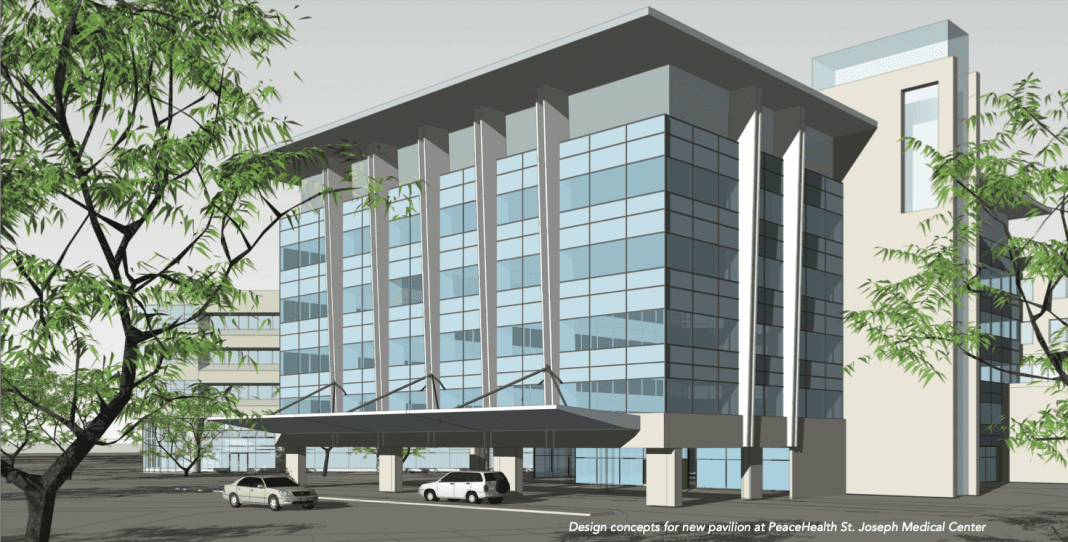Submitted by PeaceHealth
PeaceHealth has released its 2025-2028 Community Health Needs Assessments for its nine medical centers in the Pacific Northwest, including PeaceHealth St. Joseph Medical Center.
“As we continue to grow and evolve, I want to express my gratitude for the work we do and the communities we serve. The support and trust in our mission is heartfelt,” said Charles Prosper, chief hospital executive, PeaceHealth St. Joseph Medical Center. “Our journey is shaped by the passion and commitment of individuals, and together, we are building something truly special. These efforts are laying the foundation for the future of healthcare, creating lasting value and positive impacts for all.”
CHNAs are conducted every three years, detailing current community medical needs, statistics and activities. Each CHNA identifies the areas of greatest need in the community and serves as a blueprint for the work to be done with local agencies and organizations to meet those needs and improve personal and community health.
“The Community Health Needs Assessment process serves as a conversation starter that leads to an understanding of our communities that statistics cannot create alone,” said Liz Dunne, PeaceHealth president and chief executive officer. “At PeaceHealth, we find value and joy in building the relationships that make those conversations never-ending.”
Building on work led by Healthy Whatcom, key findings within the Bellingham community included prioritizing child and youth mental health, support for early learning and childcare, and the need for stable housing, which are all impacted by widespread financial hardship.
Four pillars of community health inform PeaceHealth’s priorities for health improvement and collaboration. Across these pillars is the awareness of PeaceHealth’s solemn responsibility to those who have been underserved, historically marginalized, and most impacted by health inequity and system injustices. These four pillars include:
- Home: Improve access to service-enriched housing.
- Hope: Increase education, access to treatment and prevention of dependence.
- Care: Expand knowledge, access and engagement with community caregivers.
- Nourish: Address food insecurities to enhance family and child well-being.
A recent example of community collaboration is the Way Station, a state-of-the-art health and hygiene facility dedicated to serving individuals experiencing homelessness in Bellingham. Health and hygiene services started in November 2024, followed this year with respite care for patients discharged the hospital without a home setting for recovery. The Way Station’s unique partnership—between Unity Care NW, Opportunity Council, PeaceHealth and Whatcom County— aids in the disruption of cycles that keep people from accessing available housing. Visitors to The Way Station can access case management provided by Opportunity Council and other services to assist their transition to sustainable housing.
In addition, Whatcom County Response Division teams are co-located at The Way Station, providing further support for visitors.
CHNA reports can be accessed here for all of the following:
Alaska: PeaceHealth Ketchikan Medical Center
Washington: PeaceHealth Southwest Medical Center in Vancouver; PeaceHealth St. John Medical Center in Longview; PeaceHealth Peace Island Medical Center in Friday Harbor; PeaceHealth United General Medical Center in Sedro-Woolley; PeaceHealth St. Joseph Medical Center in Bellingham
Oregon: PeaceHealth Cottage Grove Community Medical Center; PeaceHealth Peace Harbor Medical Center in Florence; PeaceHealth Sacred Heart Medical Center at RiverBend in Springfield
About PeaceHealth: PeaceHealth, based in Vancouver, Wash., is a non-profit Catholic health system offering care to communities in Washington, Oregon and Alaska. PeaceHealth has approximately 16,000 caregivers, nearly 3,200 physicians and clinicians, more than 160 clinics and 9 medical centers serving both urban and rural communities throughout the Northwest. In 1890, the Sisters of St. Joseph of Peace founded what has become PeaceHealth. The Sisters shared expertise and transferred wisdom from one medical center to another, always finding the best way to serve the unmet need for healthcare in their communities. Today, PeaceHealth is the legacy of the founding Sisters and continues with a spirit of respect, stewardship, collaboration and social justice in fulfilling its Mission. Visit us online here.











































